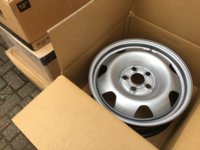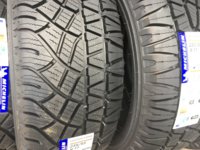The Motor Vehicles (Approval) Regulations 2001Loz, each to his own, and stay the right side of the law; but are you sure about this?
My insurers are fine?
Lots of other insurers are fine?
Lots of off road tyres carry low(ish) speed ratings but are used on very powerful Landrovers/Rangerovers/Toyota Landcruisers etc etc.
Double cab pick ups are 200bhp+ now, and they are real off roaders, often running real off road tyres
6. Each wheel on each axle shall be equipped with a tyre which has a load capacity such that when the axle is loaded to its maximum permitted axle weight, the weight transmitted to the road surface by that tyre does not exceed that load capacity.
7. The speed capability of all tyres fitted shall be not less than the maximum design speed of the vehicle.



